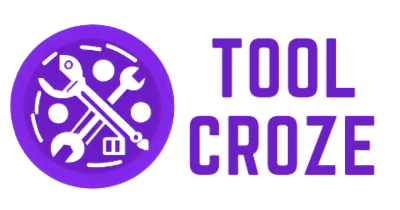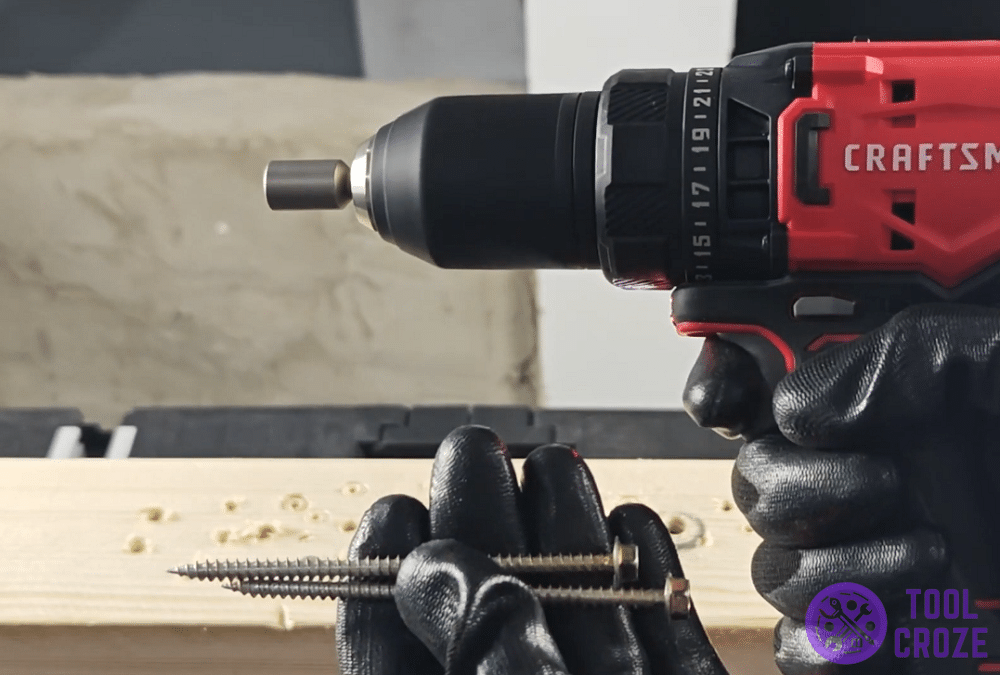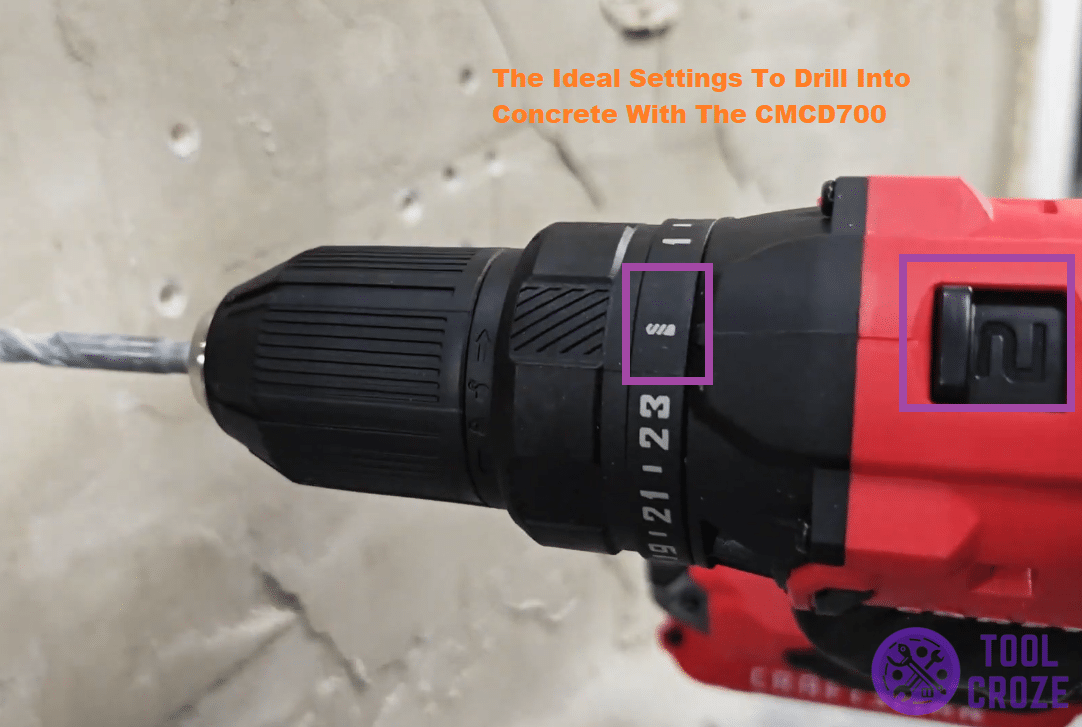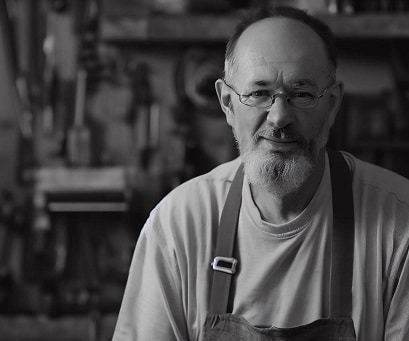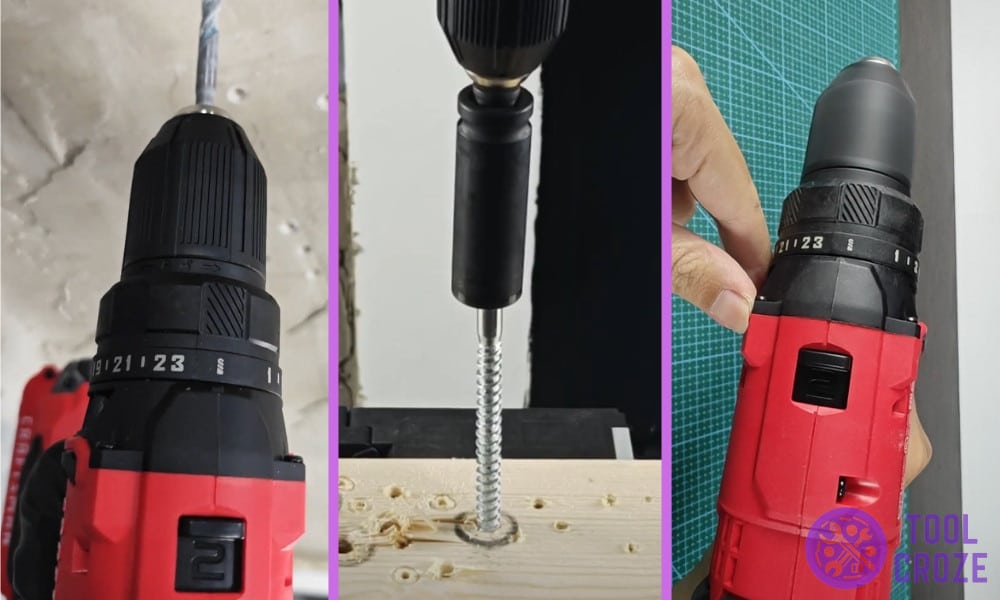
I do DIY projects at home almost every month, sometimes I fix cabinets or hang shelves. Craftsman CMCD700 is my latest purchase, I find it can handle many tasks, but I still want to share some tests I did.
In this post, I talk about specs & performance of Craftsman CMCD700, also 4 different tests I done with it.
Craftsman CMCD700 Drill Driver Review
Drill Driver Specifications
Here are the details about the Craftsman CMCD700:
| CRAFTSMAN CMCD700 Drill Driver Specifications | |
|---|---|
| Chuck Size | 1/2 in or 13mm |
| Max RPM | 1500 |
| Clutch Positions | 23 + Drilling Mode |
| Hammer Mode | No |
| Battery | 20V Lithium Ion |
| Speed Settings | 2 |
| Max Torque | 280 in-lbs |
| Motor | Brushed |
| LED | Yes |
I tested speed adjustment by pressing trigger softly or fully, but I notice it is smooth enough for wood tasks. Motor is brushed type, I found it normal for occasional house use.
2 speed settings let me swap from fast drilling to slower, more precise work. There is also a dial that lets you change modes and speed, as you can see below.
I like CMCD700 because it feels solid in my hand, but it is still light, about 1.65 kg with battery, that helps me avoid strain on arms.
Sometimes I grab it in 1 hand while I hold screw with other hand, so weight balance is important. This drill is not brushless, so it might not run as efficient as higher-end models, but it does well for me.
- Screw Driving Into Wood
1st test I did was driving short screws into wood boards for a shelf project. I used various screw heads, star & hex & sometimes flathead too.
This Craftsman tool has a ½-inch keyless chuck, that helps me swap bits fast. I like that it has about 23 clutch settings, so I can avoid overdriving screws.
One time I set clutch to 5 & it was bit too weak, next time I tried clutch 9, it was perfect. I had no big trouble using Craftsman CMCD700 for this task.
I do notice sometimes that speed might drop if I push too hard on screw, but that’s normal for a brushed motor drill driver in this price range.
- Long Screw Driving Into Wood
2nd test was using longer screws, around 3 or 4 inches, in thicker wood. I used lower speed setting to get more torque, because longer screws needs more power.
Then I flipped to high speed after halfway in, it felt great. I never felt driver get too hot, though I only drove maybe 5 screws in a row.
1 small negative is that brushed motors can get warm if you push them too far. I do not mind that, I just take short break if it’s feeling warm. This helps keep tool in good condition for more uses.
- Long Bolt Driving Into Wood
3rd test was driving 2 big bolts into wood. This test is more for heavy tasks, I only do that rarely, but I wanted to see how CMCD700 holds up.
It took me extra time & I had to push carefully so I not jam it. It can do it, but not as strong as a more heavy-duty tool with bigger torque.
If you do huge bolt tasks frequently, a bigger drill might be needed. But for quick chores, it’s ok.
- Drilling Into Concrete
4th test I tried was drilling small pilot holes into concrete wall. This driver not has hammer mode, so I used standard drill setting & a masonry bit.
It did manage to create small holes, but it is slower & might overheat if you do large holes or many holes. If you want to do actual masonry job often, better to get a hammer drill.
But for me, who rarely drills walls, CMCD700 can handle small tasks if used carefully.
